Team
Current members
Team in the Laboratoire d’Océanologie de Villefranche (LOV)
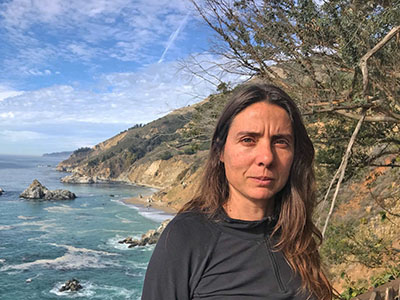
(Make Our Planet Great Again Laureate)
Núria Teixidó (Google Scholar) is a senior research scientist and holds two institutional addresses: the Laboratoire d’Océanographie de Villefrance (LOV), France, and the Stazione Zoologica Anton Dohrn (SZN), Italy. Her research focuses on marine heatwaves, ocean acidification, biodiversity, ecophysiology, and ecological genomics of local adaptation. As a “Make Our Planet Great Again” Laureate, she is working with colleagues across USA and Europe. Together, they investigate physiological, ecological and adaptive responses of marine organisms to ocean warming and acidification. Previously, she was a visiting scientist at Stanford University’s Hopkins Marine Station (USA), sponsored by a H2020 Marie Sklodowska-Curie Action. She received her PhD from the University of Bremen - Alfred Wegener Institute (Germany).
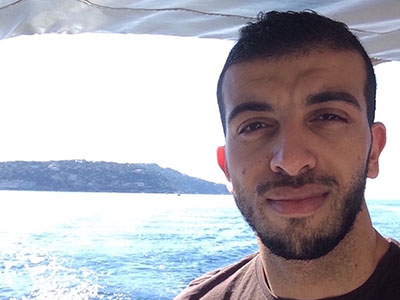
CNRS, assistant engineer.
Within 4Oceans, Samir works mainly on pH sensor deployment, calibration and total alkalinity analyses.
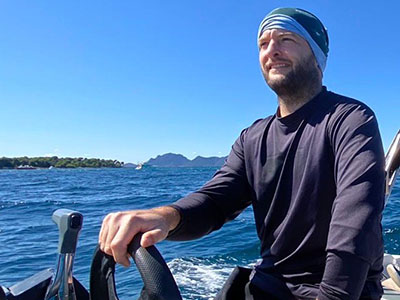
Steeve Comeau is a CNRS research scientist at the Laboratoire d’Océanographic de Villefranche. His research focuses on the effects of environmental changes on benthic organisms with a particular expertise on corals and coralline algae. Within the MOPGA project Steeve is involved in the experiments on corals from Ischia, the supervision of students, and the monitoring of environmental parameters.
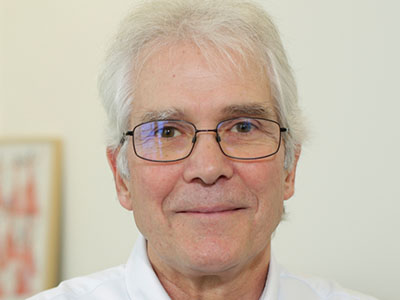
Jean-Pierre Gattuso is CNRS Scientist at Sorbonne University and the Institute for Sustainable Development and International Relations. He studies the effects of global change on marine ecosystems and their services. He also investigates ocean-based solutions to mitigate and adapt to climate change. He coedited the first book on ocean acidification and contributed to several IPCC products (AR5, Special Report on 1.5°C of Warming and the Ocean and Cryosphere Special Report).
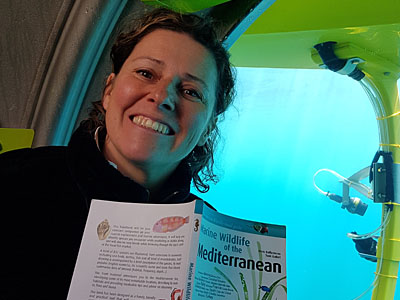
Luisa Passeron Mangialajo is a Maitre de Conférences HDR and deputy director of the recent Federative Research Laboratory in Marine Resources of the University Côte d'Azur (Nice, France). Her research is focused on the ecology of marine forests of large brown algae, including climate change, local human impacts, trophic relations, conservation, and restoration as well as benthic Harmful Algal Blooms (Ostreopsis). She also has a long experience in ecological indicators, having contributed to the conception of an index of ecological quality (CARLIT index) in the framework of the Water Framework EU Directive that is now applied in the whole western Mediterranean Sea and part of the Adriatic and Eastern Mediterranean Sea.
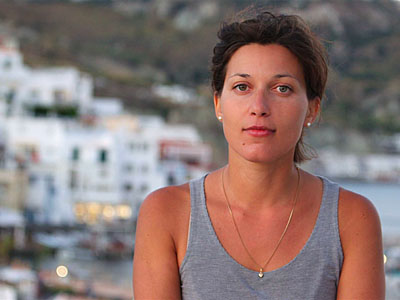
Post-doc at the Stazione Zoologica Anton Dohrn based on the island of Ischia (Naples, Italy).
Alice works mainly on seawater characterization of shallow CO2 vents located around the coastline of Ischia, including water sampling for the carbonate system calculation, calibration and deployment of pH, temperature and light sensors. She is interested in the assessment of the effects of ocean acidification on fish communities associated with seagrass systems, evaluating both changes in structural and functional fish biodiversity under OA conditions.
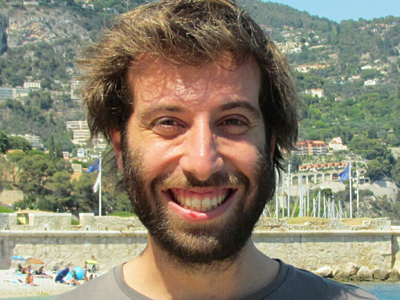
Jérémy Carlot is a post-doctoral fellow mainly interested in the functioning of benthic communities. He did his PhD at the Centre de Recherches Insulaires et Observatoire de l’Environnement (CRIOBE – France and French Polynesia), to study how the coral reef functioning was affected by global change. He was also interested in more human-centered issues, quantifying the loss of efficiency of coral reefs to dissipate wave energy in a changing world. He later conducted a 1-year post-doctoral fellowship at the Centre de Synthèse et d'Analyse sur la Biodiversité (CESAB – France) to define a functional index of coral reef health on a global scale.
Jérémy is now at the Laboratoire d'Océanographie de Villefranche sur mer (LOV – France), where he is interested in functional biodiversity and functional traits of marine benthic species and their links with ecosystem functioning under global climate change.
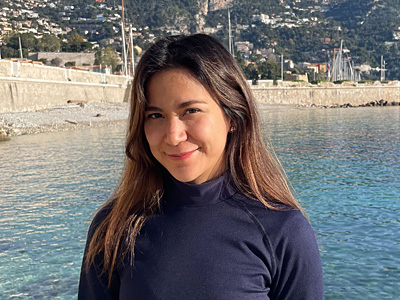
Karla Abril Hernandez Ramirez is a M2 student enrolled in the Master of Science in Earth and Planetary Sciences, Environment program specializing in Soil, Water, & Environment, at the University of Bourgogne (France). Currently, she is interning at the Laboratoire d’Oceanographie de Villefranche sur mer (LOV), focusing on the impact of ocean acidification on benthic communities. Her objective is to conduct a meta-analysis examining how ecosystem functions are influenced by ocean acidification, exclusively utilizing natural CO2 vents as study sites. These vents serve as natural analogs for future ocean acidification conditions. Her overarching aim is to deepen the understanding of the relationship between functional biodiversity and ecosystem functioning in response to global change.
Former members
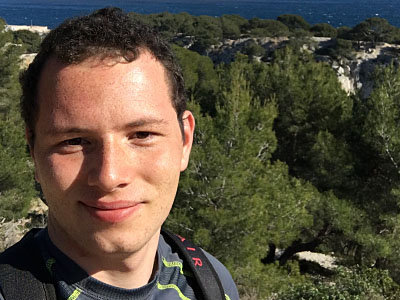
I am a Master's student in Oceanography at the University of Aix-Marseille. Over the last years, I have done several internships working in characterizing deep-sea coral feeding activity. Currently, I’m doing my Master’s thesis at the Laboratoire d'Océanographie de Villefranche. Within 4Oceans-Mopga project, I’m studying the population dynamics of Astroides calycularis, an azooxanthellate scleractinian coral endemic to the Mediterranean. I compare natural populations of this scleractinian coral at a volcanic CO2 vent and two nearby referent sites with ambient pH and no vent activity along the coast of Ischia (Italy).
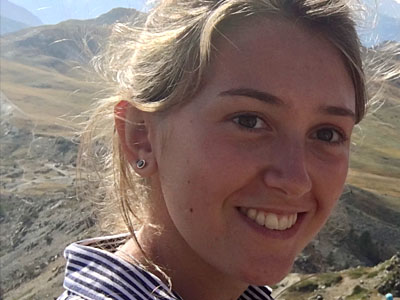
Mélissa Herrero is a Master's student from the MSc. Environmental Management and Coastal Ecology at La Rochelle University. She is an intern at the Laboratoire d'Océanographie de Villefranche. Her work consists of using environmental DNA (eDNA) to evaluate the effects of acidification on Posidonia meadows in the Mediterranean Sea. For this purpose, Mélissa uses natural CO2 vents along the coast of Ischia (Italy). The major aim is to determine whether eDNA can detect high-resolution changes in ecological communities along a gradient of pH.
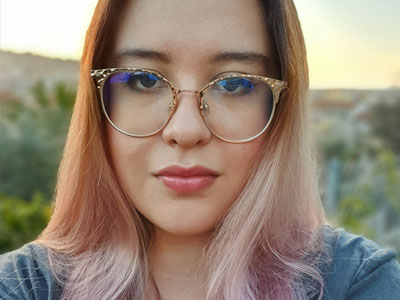
Keyla Plichon is a Master’s student (first year) from the MSc. MARRES at the Université Côte d’Azur.
She is an intern at the Laboratoire d'Océanographie de Villefranche. Her internship's goal is to assess the impact of global change on the reproductive cycle of two endemic Mediterranean coral species of key relevance for conservation, the zooxanthellate species Cladocora caespitosa and the azooxanthellate species Cladocora caespitosa . The aim is to compare the gametogenesis and the early life stages for both species in low pH environments associated with CO2 vents and reference areas with ambient pH along the coast of Ischia (Italy).
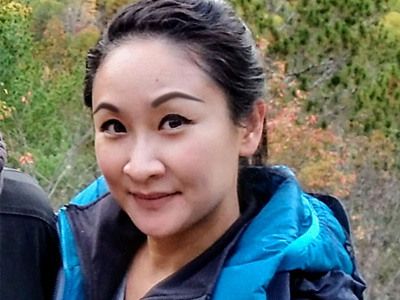
MOPGA postdoctoral fellow.
Phoebe Tsz-Wai Chan (Google Scholar) is a MOPGA postdoctoral fellow at the Laboratoire d'Océanographie de Villefrance (LOV), France. Her research focuses on the effects of ocean acidification and marine heatwaves on coralline algal physiology and biodiversity. Within the 4Oceans MOPGA project, Phoebe is examining the skeletal structure and density of coral and coralline algal skeletons using micro-computed tomography (micro-CT). Her "Make Our Planet Great Again" postdoc project is entitled "Mechanisms of resilience to ocean acidification: Structural features of calcifying algae related to enhanced biodiversity in naturally acidified environments (CALSTRUCT)". Previously, she was a postdoc at the University of Bergen and Bjerknes Centre for Climate Research in Bergen, Norway, sponsored by the Norwegian Academy of Science and Letters VISTA department. She received her PhD from the University of Toronto, Canada.
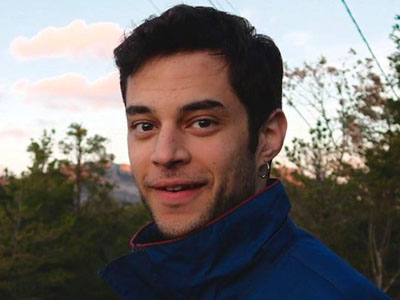
Ioannis Kalaitzakis is a Master’s student (M1) from the MSc. MARRES at Université Côte d’Azur.
He is an intern at the Laboratoire d'Océanographie de Villefranche. His work focuses mainly on the sequestration of organic carbon in the sediments of Posidonia oceanica meadows at natural CO2 vents in Ischia. Specifically, Ioannis aims to assess whether the presence of CO2 vents have an impact on the sequestration of organic carbon in the sediments. This internship is also conducted with the collaboration of Pere Masqué) (International Atomic Energy Agency). Previously, Ioannis has worked in projects at the Hellenic Center for Marine Research and at the Leibniz Center for Tropical Marine Research
.
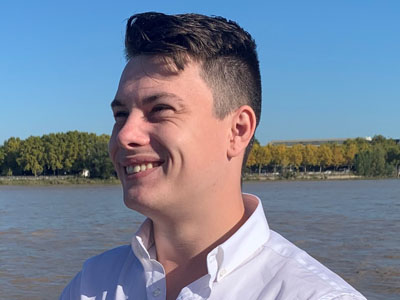
Marc Meynadier was a Master's student in Bioinformatics at the University of Bordeaux (computational biology course). His work at the LOV consisted in carrying out comparative transcriptomics between different populations in adults and juvenile corals of Astroides calycularis using bioinformatics tools. Specifically, Marc aimed to assess whether the populations that occurs at a CO2 vent system show differences in genetic expression compared to populations at reference sites with ambient pH. The comparison of transcriptomes among populations will also help to elucidate whether there are signals of local adaptation. Now, Marc is a PhD candidate working on genome and protein evolution in animals at LBDV-IMEV.
.
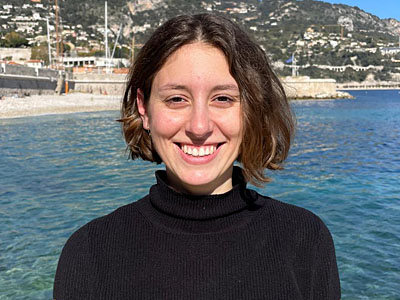
Anaïs Barrera Montoro is a M2 student from the International Master of Science in Marine Biological Resources (IMBRSea) currently working in her master thesis at the Laboratoire d’Océanographie de Villefranche (LOV) within the 4Oceans and Shift2solve projects. Graduated in Environmental Biology by the Autonomous University of Barcelona (UAB), she is interested in benthic ecology and ecosystem resilience. During her bachelor’s project at the Centre for Advanced Studies of Blanes, Spanish National Research Agency (CEAB-CSIC) she analyzed, at a global scale, the effect of temperature and nutrient concentration on sea urchin’s feeding behavior across multiple macrophyte systems and how these drivers could lead to a shift of the system to a bare state. Anaïs is also part of the Hidden Deserts Project team which aims to detect, monitor, and restore underwater deserts once fully vegetated.
.
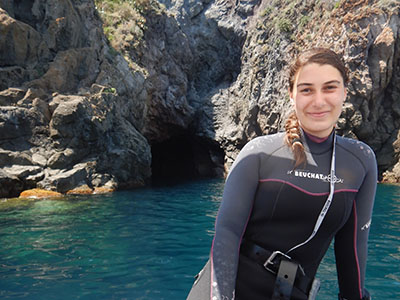
PhD 2023 (Sorbonne University).
Within 4Oceans, Chloé studied the role of environmental variability on the response of Mediterranean species to global change.
The PhD project covered nearshore oceanographic studies, ecological experiments in marine volcanic CO2 vents and manipulative multiple-driver experiments in the laboratory to understand the effects of environmental variability and extremes on natural populations of corals. Chloe will start a postdoc position working on coral thermal tolerance at the Bermuda Institute of Ocean Sciences.
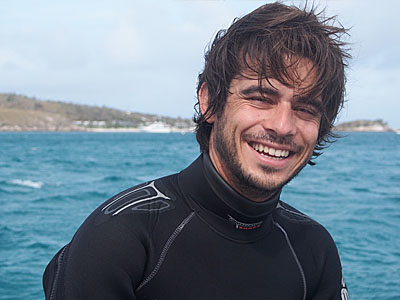
Jordi Boada (Google Scholar) was a MSCA postdoctoral fellow at the Laboratoire d’Océanographie de Villefrance (LOV), France. His research focused on understanding resilience of marine communities. Within the framework of his Marie Curie project (SHIFT2SOLVE), Jordi aimed forecasting the resilience of marine macrophytes as a tipping element to future environmental conditions by studying species acclimatization capacity. Additionally, Jordi uses drones and artificial intelligence to identify patterns of ecosystem collapses. Jordi got a tenure-track position with a Ramon y Cajal grant at the Centre for Advanced Studies of Blanes, Spanish National Research Agency (CEAB-CSIC).
.
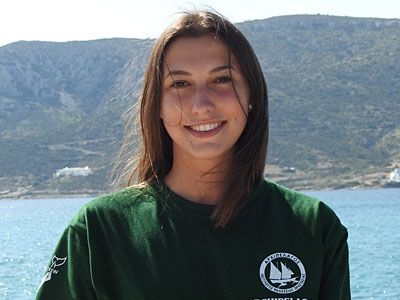
Romane Torchy is a M1 student in MSc Science, Conservation and Valorization of Marine Resources (MARRES) at the University Cote d’Azur. She is currently working at the Laboratoire d’Oceanographie de Villefranche (LOV) as an intern on the effects of ocean acidification on benthic communities. She aims to develop a meta-analysis on how ecosystem functions are affected by ocean acidification. The analysis focuses mainly on studies that have been conducted at natural CO2 vents. These sites are used as natural analogues for future ocean acidification conditions. The goal is to better understand the link between functional biodiversity and ecosystem functioning in response of global change.



